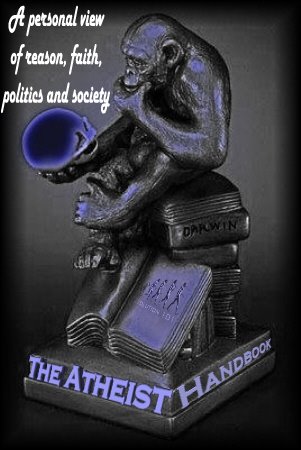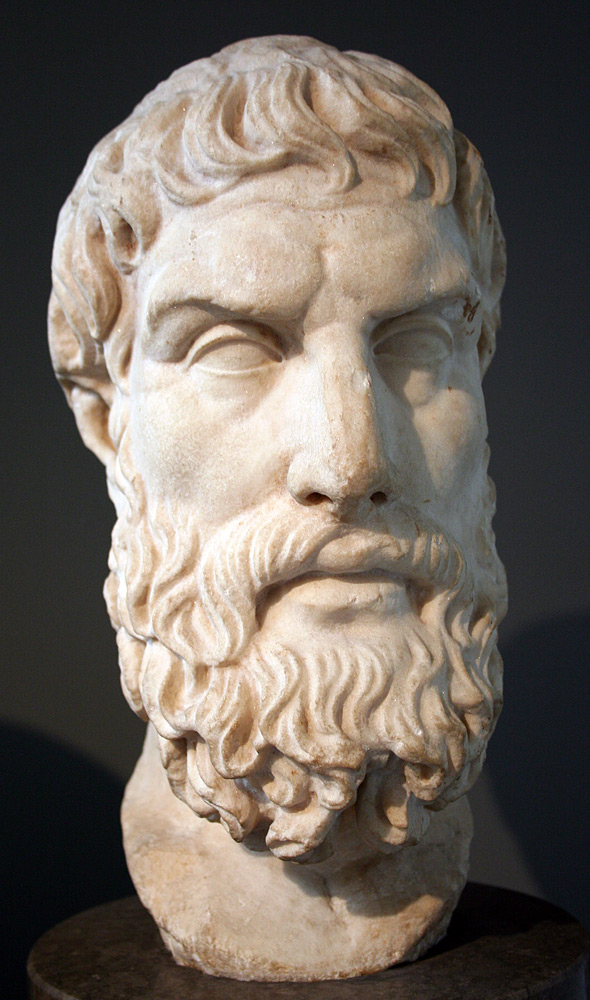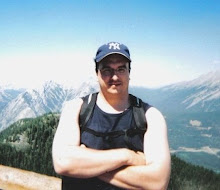 It took the Church until 1832 to remove Galileo's work from its list of books which Catholics were forbidden to read at the risk of dire punishment of their immortal souls.
It took the Church until 1832 to remove Galileo's work from its list of books which Catholics were forbidden to read at the risk of dire punishment of their immortal souls.-Carl Sagan
There is a story about Galileo.
Having engaged his in one man revolt against the Catholic Church, the scientist is dragged before the dreaded Inqusition. Forced to recant his findings that the sun, not the earth, was the center of the cosmos, he is dragged away to live under house arrest. And as he is about the leave the room he whispers under his breath "and yet it moves," in defiance of the Chruch's insistence that the Earth stands still.
Hell of a tale isn't it? There's just one catch. It's not entirely true. And that last bit about "and yet it moves"? Rubbish. Never happened. But its part of the myth that has become part of the story of what is often called "The Galileo Affair." Now in his attempt to show that Christianity is the inventor of science, Dinesh D'Souza sets out to do what he figures is a revolutionary act - debunk the myths around the story of Galileo. (Hint to Mr. D'Souza. No serious scholarship has every taken this myth seriously.) Morever, he oddly claims this is an "atheist" myth, part of some nebulous atheist propaganda machine meant to make Christians look bad. You can see his views on this here.
He is actually quite right about several things. Galileo was never tortured. He was also a huge egoist who was not going to be old by anyone what he could think or write. And that Galileo was too smart not to know he was really going to piss off the pope by making him seem a fool in this great book. Dialogue Concerning the Two Chief World Systems. (I wrote more about the detials Galileo affair on this blog here and I am not going to repeat them at this point. So pleas feel free to back and read them).
D'Souza is also right that the church tired, in its way, not to get into a row with Galileo. You see he had written a letter to a Duchess who had asked him if when the bible said the earth didn't move was the bible wrong? Galileo said, well, yes, in fact scientifically speaking the bible was wrong. Rome, which had already decreed that the sun centered system first proposed by Copernicus was in violation of scripture and church teaching, wasn't going to take that laying down. And D'Souza is also right to say that Galileo was ordered by the infamous Cardinal Bellarmine not to "hold or defend" the Conperincan view. (Galileo agrees and asked for a ceritificate explaing the Cardinal orders and recieves it, signed by Bellarmine himself.) But then, as D'Souza always does, misses the important facts in favour a pre-determine conclusion. He portrays the Church as being intellectually honest and patient, and forced to bring Galileo before the inquisition. Hey sas Galileo recants out of exhaustion but it otherwise treated with respect by the Inquisition (and office well known for its tolerance and honesty.) Galileo, whose defense at this trail is "dishonest" according to D'Souza, is placed under house arrest and lived in comfort until his death 8 years later. Moroever, he implies that Galileo is to the blame here. It's his fault, not the church's.
Oh and the kicker here: Galileo was NEVER charged with heresy, D'Souza says. But facts are tricky things, particularly when you avoid them. D'Souza says this about Galileo's trail:
In 1633, Galileo returned to Rome, where he was again treated with respect. He might have prevailed in his trial, but during the investigation someone found Cardinal Bellarmine's notes in the files. Galileo had not told the present Inquisitors - he had not told anyone - of his previous agreement not to teach or advocate Copernicanism. Now he was viewed as having deceived the church as well as having failed to live up to his agreements. Even his church sympathizers, and there were several, found it difficult to defend him at this point.
Ah, but that is not the whole story. One again, D'Souza doesn't do his research. Galilieo is actually charged by the Inquisition with "vehement suspicion of heresy" a fact D'Souza leaves out. Then there s this business bout the notes of Cardinal Bellarmine that apparently cannot be found. Tsk tsk. Here D'Souza makse a massive blunder.
You remember that note that Galileo had asked for from Ballarmine explaining the order not to hold or defend the sun centered view? This comes into play in a big way. The Inquisition says Galileo's book violated Ballarmine's orders not to "hold, defend or teach" and produce a document to that effect. But the old buzzard Galileo has an ace card. He produces HIS certificate given to him and signed by Ballarmine. It only says he could not "hold or defend" the view, but it says nothing about not teaching it. The you know what hits the fan. The Dominicans running the show during the trail are taken aback. They are meticulous record keepers and this is unexpected. The signature on the Inquisition's document appears suspect. And this might be the loop hole that Galileo needs to avoid torture. (These documents are all kept in the Vatican archives which shows the Inquisitor threatening to torture Galileo if he does not recant. D'Souza might want to look em up.)
Anyway, despite this pretty shocking term of events, Galileo's fate is sealed. He is ordered to recant, and this is a BIG thing D'Souza leaves out, under the threat of torture. Galileo is an old man backed into a corner. So he surrenders and recants. He is placed under house arrest for his remaining eight years of life.
D'Souza is correct to say that Galileo was being directly confrontational with the Church. And his sly gambit of producing Bellarmine's letter didn't work. And then D'Souza gets really odd. He basically says the Church acted in good faith in handling Galileo. Good faith? Threatening to torture an old man for holding a view that was forbidden by Church doctrine? Placing his books on the banned this and threatening those who read them with dire consequences? He says because the evidence Galileo presented was no definitive (in particular Galileo's use of the tides of proof, which turned out to be wrong) that the Church was right to censor Galileo. Consider what he is saying here. It's Galileo's fault for exploring science and talking about it, not the Church's fault for suppressing knowledge. D'Souza is saying that Galileo should have just obeyed the orders of a dictatorial church!
No, Mr. D'Souza, you got it wrong by ignoring the facts. It is true that Galileo caused himself a whole world of grief when he mocked the pope in his book. But he was silenced by a church with thin skin, threatened by new ideas and so threatened him with tortured and his books were banned. This is not the actions of a reasonable opened minded organization that D'Souza wants us to believe the church was. It was a dictatorial power that crushed any opposition to its authority.
This is why Galileo is rightly revered today. For this great scientific work and his arrogant defiance of religious authority.
There are many myths about what happened to Galileo, most simplifying a very complex situation. Well all D'Souza has done is created another myth by ignoring the facts.
By the by here is Carl Sagan presenting some of the important details of this subject. Compare to anything D'Souza presents:
















3 comments:
i've been enjoying your posts today and read some of your arguments on d'souza's claims. thanks.
My pleasure! Thanks for reading!
Your post is well written and thoughtful. It contains a few typos and I will be happy to help correct them if you would like (I work as an editor). My e-mail address is jasonpreagan@gmail.com. Thanks.
Post a Comment